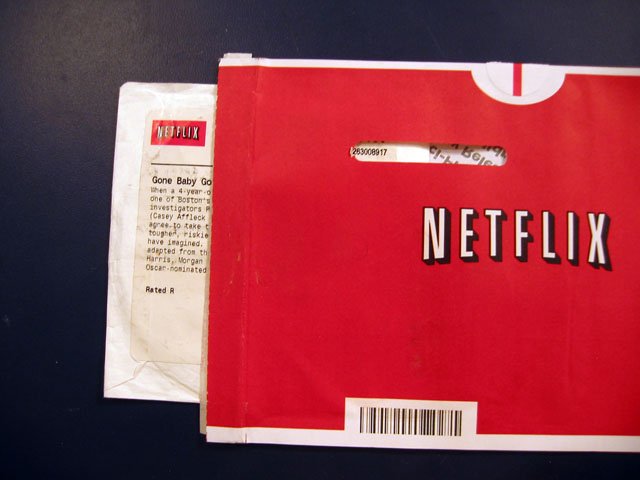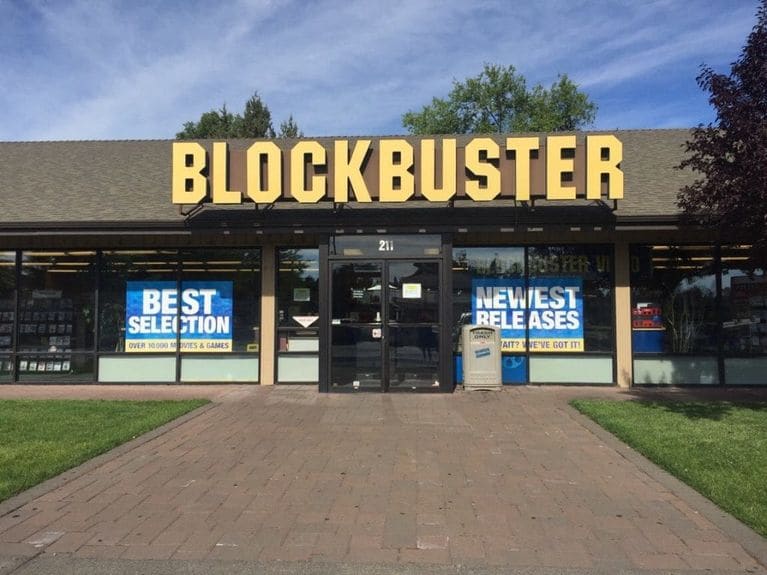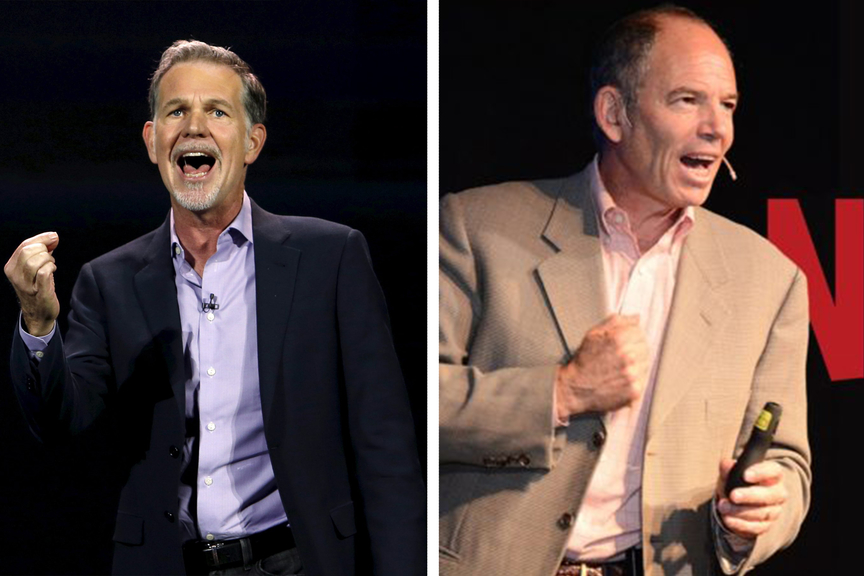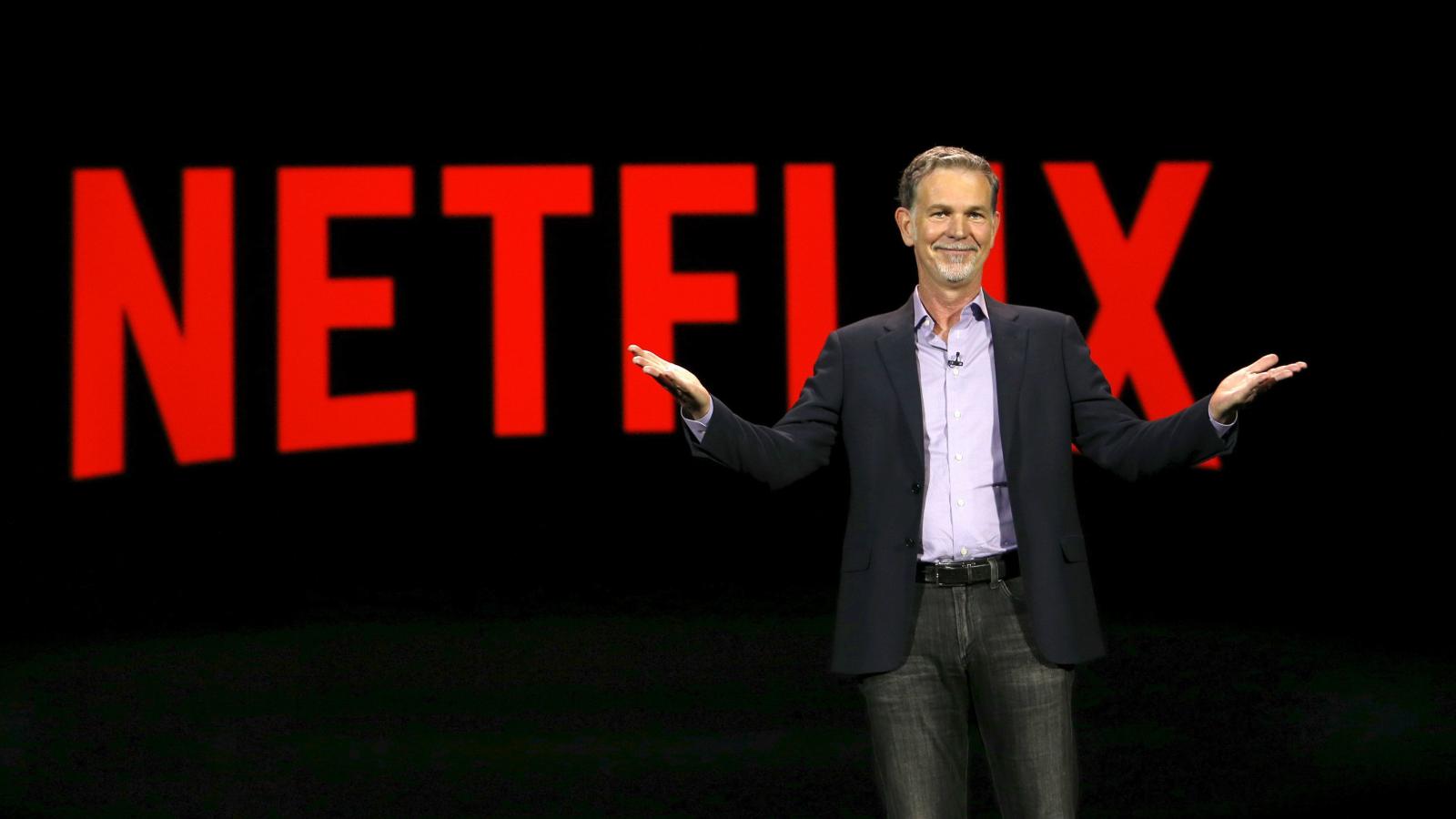“You’ll learn more in one hour of doing something than in a lifetime of thinking about it”
The fact that you are here, makes me think you have similar interests as me. Data (duh), tech, business, career and maybe even leadership. If that’s true, then also like me, you will LOVE That will Never Work, a memoir by Marc Randolph.
When I picked up the book, I had low expectations. I anticipated a glossed over tale of glory, of how a person turned a $40-dollar late fee at blockbuster into a billion-dollar corporation. Including tales of ignoring your friends, family and a social life in pursuit of millions of dollars. That’s probably because the first book I read about startups was like that. It was called Chaos Monkeys and was interesting, but very bro-y in nature and painted a picture of bamboozling someone into a high valuation and then cashing in. I couldn’t have been more wrong about ‘That Will Never Work’. I was blown away by how genuine and honest Marc Randolph tells the tale of his journey at Netflix. There are emotional reflections of tough times at the company, interspersed with a constant reminder of what’s most important - family. Those are the themes that resonated with me throughout this book. How fast the company went from launch to a subscription model and going public, how the culture always remained the same, and how the executive leadership was way ahead of its time.
“Success is what you accomplish. It’s being in a position to do what you like, do what you do well, and pursue the things that are important to you.”
Remember DVD’s?
After my sophomore year of high school, I was focused on getting my driver’s license, picking up hours pushing carts at the local grocery store and spending time in AOL chat rooms. Marc Randolph was preparing to launch Netflix, an online store where you could buy or rent DVDs. At a small office in Santa Clara, two servers (think of the cloud except at your house) were installed to handle whatever web traffic would come their way. Fast forward 21 years and DVD’s are used as coasters, AOL has gone the way of the dodo bird, and Netflix is thriving as an online entertainment and content platform. Please be kind and rewind, what the hell happened?
The last book I enjoyed as much as this one was Thomas Friedman’s Thank you for being late. Friedman discusses how fast things have changed and continue to change in our digital world. For example, consider a car in 1980 vs. a car in 1990. Sure, the designs and safety features evolved, but at its core they were incredibly similar. Now consider a cell phone in 2000 vs. a cell phone in 2010. A phone was still a phone in 2000, in 2010 it could replace your laptop. A younger generation knows Netflix only as ‘Netflix and chill’. A streaming service that allows you to enjoy a new movie or episodes of ‘Friends’, from anywhere on any number of devices, with a random person you met on Instagram. For me though, I can remember waiting for a DVD to arrive in the mail, so that I could pop it into my sleek DVD player (I hope I don’t have to explain what a DVD player is) and enjoy a movie or show.

When I first signed up for Netflix, I was home from college during the summer of 2001 and was spending my nights delivering pizzas for Dominos. I would work until we closed at midnight, then head home with a box of wings and pulled out the latest disc of ‘The Sopranos’. I would stay up for hours watching one of the best shows ever, but little did I know that I was ‘binge watching’ it. I was able to continue to get episodes on DVDs via the mail because I was a subscriber for a monthly fee. It was interesting to me, to read about how the subscription model came about. Originally, they tried to be everything to everyone, which included DVD sales and individual $4 rentals. It wasn’t until they focused solely on the rental part of the business and offering it as a subscription that they really took off. You’ve likely heard of analysis paralysis and its cure, failing forward. Netflix is a shining example of sticking your neck out, responding to customers and refining your product.
“If Nobody Knows Anything, then you to trust yourself. You have to test yourself. And you have to be willing to fail.”
Blockbusted
You can’t think about Netflix without thinking about the demise of blockbuster. One of my favorite things that floats around on LinkedIn is a rebuttal of blaming big corporations for crushing the way things used to be. It usually takes the form of “UBER didn’t kill taxi cabs, fare control did, Apple didn’t kill the music industry, being forced to buy a whole album did, and Netflix didn’t kill blockbuster, late fees did”. While the quotes are played out, the point is still valid. Blockbuster has one remaining store left in the world because it thought things would stay the same forever.

My favorite story from the book is reading about how Netflix leadership flew to Dallas (hungover) to meet with Blockbuster. At the time, they NEEDED Blockbuster. The dot com bubble had burst, and Netflix was in need of cash. Subscribers were growing, but a new subscriber wasn’t immediately profitable. Thus, Blockbuster was in a position to acquire them and knew they had an upper hand in negotiations. Netflix was laughed out of the room when they asked for 50 Million dollars. We all know how this story ends. And it’s not with Blockbuster being an owner of a 150-billion-dollar company.
Another book I’m a fan of is Jim Collins How the Mighty Fall. In the book, the authoer explains that compainies can fall prey to “Hubris Born of Success”. Which is when past accomplishment creates a sense of invulnerability and a guarantee of future success. This is what happened with Blockbuster and caused them to miss a shift in the market and their customer base. Instead of noticing a trend towards subscription models and at home delivery, they felt like the stores they owned across the country would always be busy, because they had been in the past. On September 23, 2010, Blockbuster filed for Chapter 11 bankruptcy. Signaling the end of an era.
“People who have the judgement to make decisions responsibly love having the freedom to do so. They love being trusted.”
Company Culture
Another theme that is crystal clear throughout the book is establishing a company culture that works. Empowering employees, treating them like adults and making them owners of their work were key to the growth of Netflix. They believed in radical transparency and allowing smart people in their employ to solve hard problems. It’s possible to take for granted how groundbreaking this was. Today’s tech firms constantly boast about their employee benefits and perks. They recognize that if you take care of your people, they will in turn take care of your customers. Which is summed up by the also played out quote: “It doesn’t make sense to hire smart people and tell them what to do; we hire smart people so they can tell us what to do”. Netflix was ahead of the curve in this space and companies today are realizing the benefits of focusing on their culture.
“People want to be treated like adults. They want to have a mission they believe in, a problem to solve, and space to solve it. They want to be surrounded by other adults whose abilities they respect.”
Leadership
Piggybacking off of company culture is leadership. Of course, if you search for a definition of leadership you are bound to get thousands of varying answers. And what makes someone a good leader today, is not what would have made someone a good leader yesterday. I never added Mad Men to my Netflix que, but I have to think Marc Randolph would have been a terrible leader in that era. He certainly would have had the bull doggedness to be successful, but empowering employees to be their best and focusing on the most pressing problems, wasn’t the norm in that era.
I like to think leadership has come a long way since then. If you’ve read any of my other blogs, you will know that I’ve worked for more than one awful leader. In my opinion, leadership starts with self-awareness. Marc Randolph explicitly mentions self-awareness a couple times in the book, but it’s a clear topic throughout. Leaders who are self-aware are better equipped to handle tough situations. There is a point in the book when a co-founder tells Marc he doesn’t think he should be CEO. In any other number of books, you might have heard a tale of chests pumped out and testosterone flowing ending in a legal battle that resulted in millions spent but a title kept. Spoiler alert, that’s not how it goes in the Netflix story. Because he was self-aware, Marc Randolph accepted his own shortcomings and noted where he would best be utilized. With a bit of reflection, he passed the CEO baton to someone who was better able to lead the company at the time.
“As you get older, if you’re at all self-aware, you learn two important things about yourself: what you like, and what you’re good at. Anyone who gets to spend his day doing both of those things is a lucky man.”
I once had a manager who came back from a leadership seminar and excitedly declared what he had learned. He told the team that when giving feedback, you need to deliver two positives for every one negative, and that’s how to be a good leader. From that point forward, he would always come up with two bullshit positives so that he could deliver a negative. This was neither useful or productive and showed a complete lack of self-awareness. Telling someone they did a great job parking their car, and that you liked how they arranged their desk, but that you hated their presentation isn’t an effective way to deliver feedback. Interestingly enough, in the book, Marc Randolph talks about the “Shit Sandwich”, which he describes as opening with compliments and praise for work well done, then pile on the shit, and end with a blueprint moving forward.
I believe that is why, when Blockbuster laughed him out of the room, he didn’t get mad, he got even. He made some tough calls within the company and re focused. Unfortunately, that included a round of layoffs. Because he was self-aware and not wrapped up in his own hubris, he navigated the company through that tough patch, and now they are a $150 billion-dollar company.

I hope you take time to read the book and enjoy it as much as I did. I think it will be as clear to you, as it was to me, that in an era where things are changing at an incredible pace, it doesn’t take old school hierarchy’s and bullheadedness to make it through. Staying humble, staying self-aware and creating an empowering company culture is how an idea can iterate from plausible to changing the world. Love the book or the blog? Connect with me, I would love to discuss further!
“You have to learn to love the problem, not the solution. That’s how you stay engaged when things take longer than you expected”





Comments